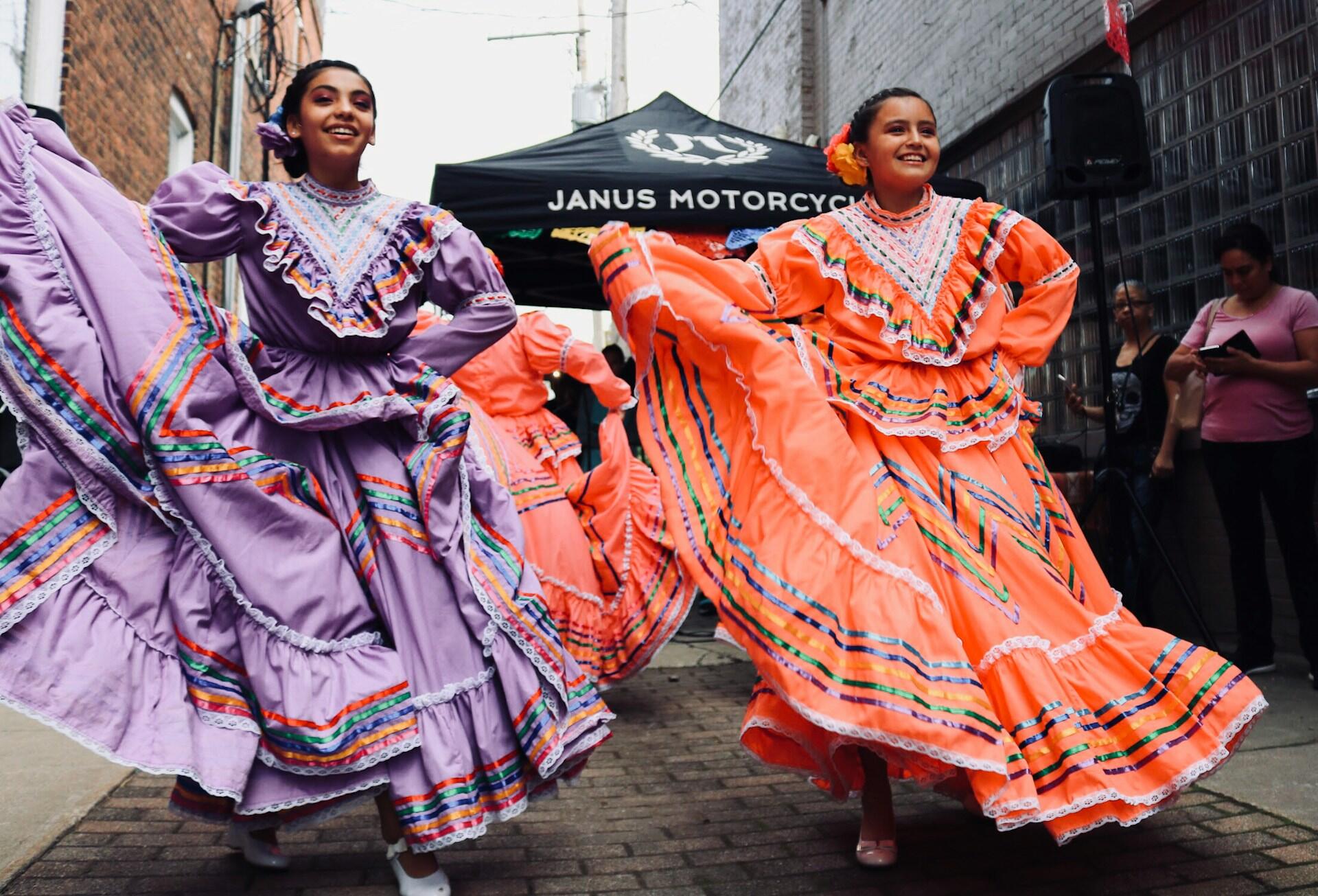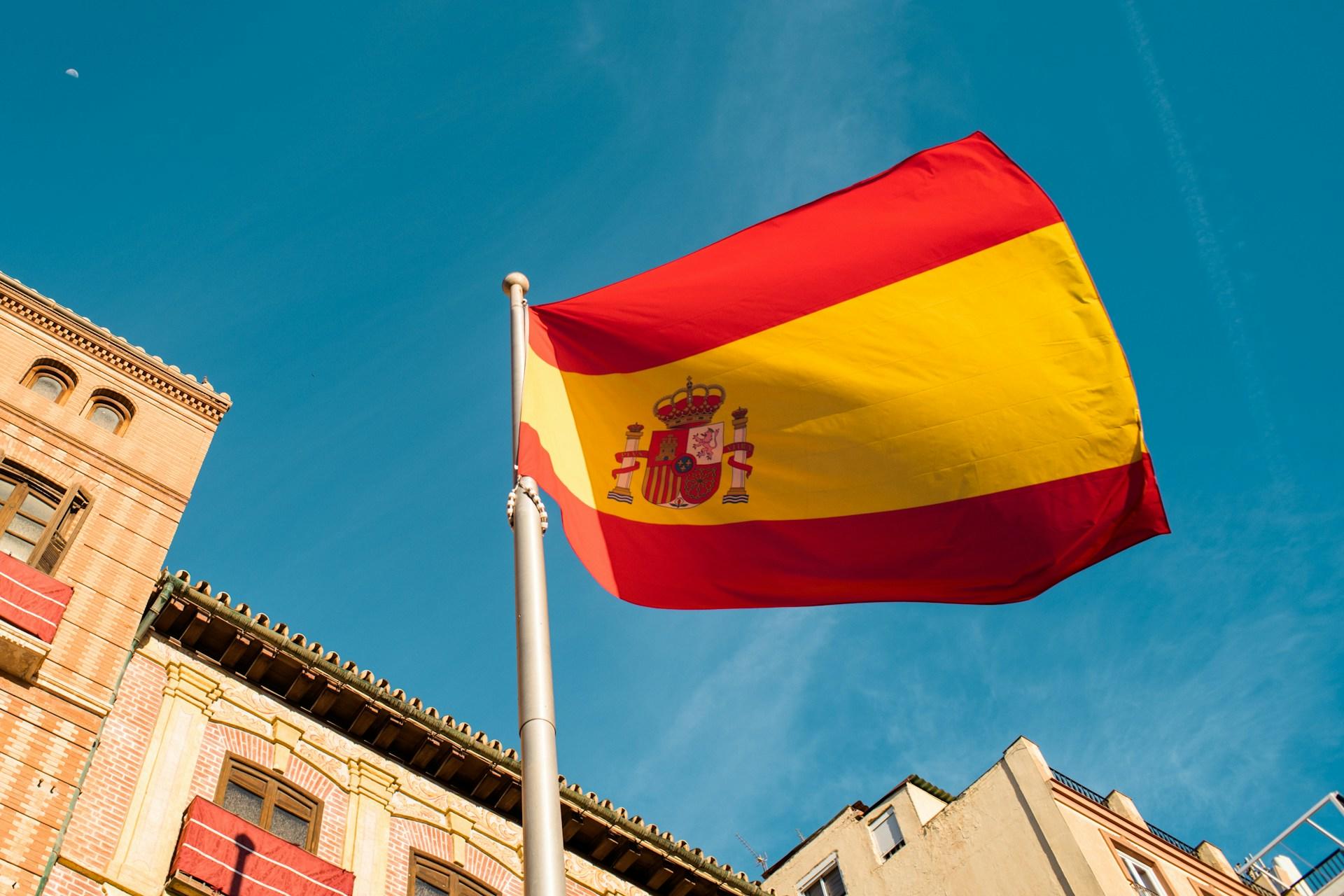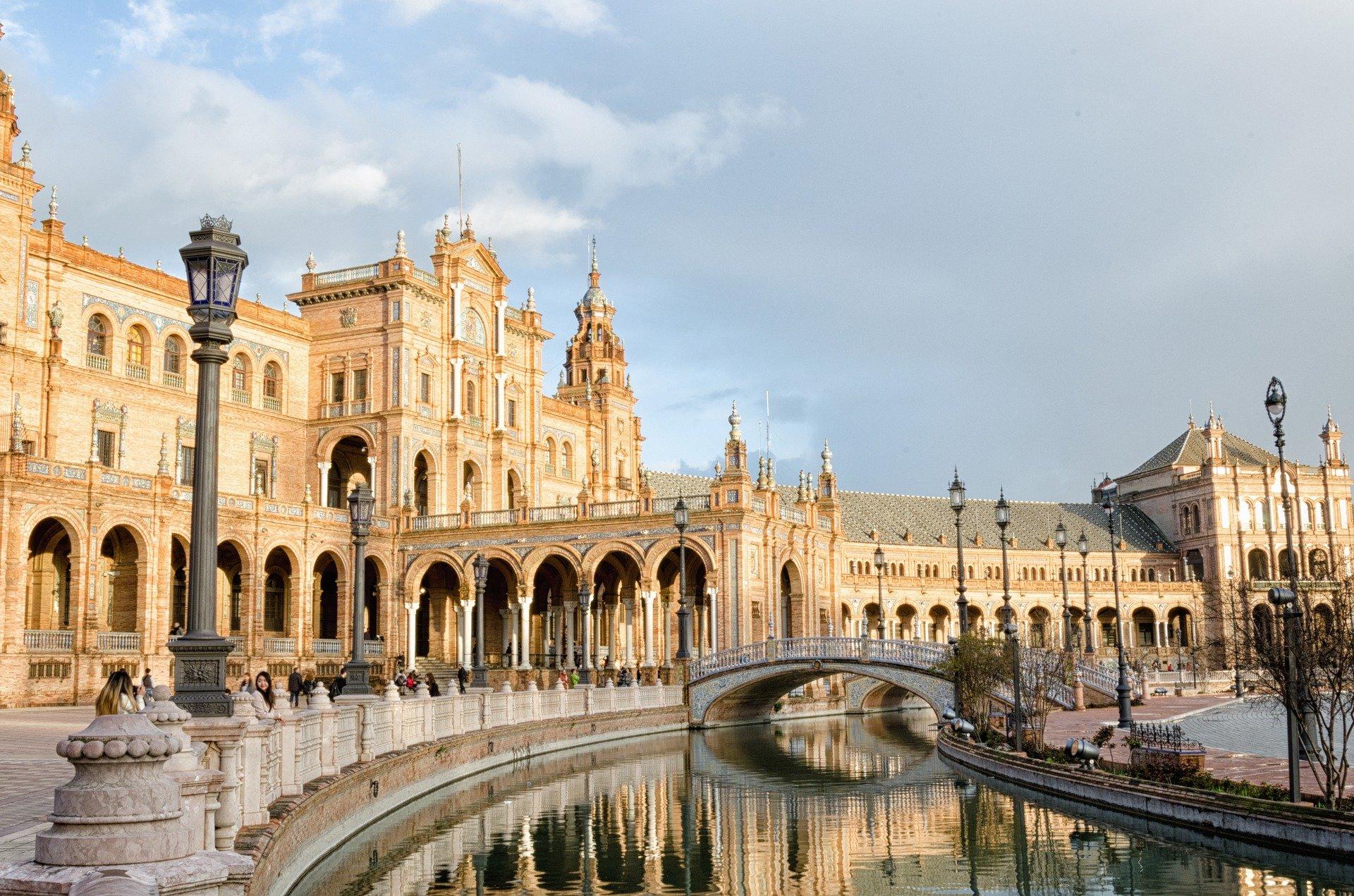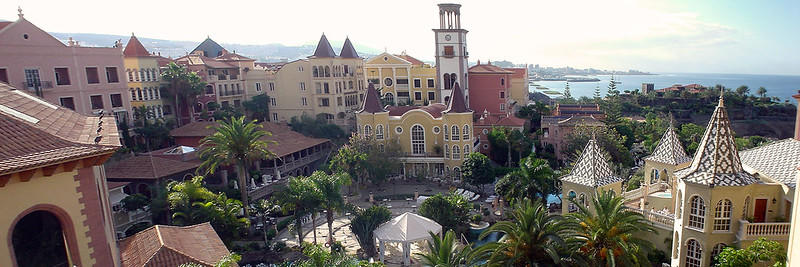As for your Spanish, don’t worry, persist. One day it will cease to feel like a language, it will become the way things are.
J. M. Coetzee
The 20th and 21st century has witnessed a lot of migration as people left their homes searching for new sceneries and experiences; some persons move in search of greener pastures. After two to three generations of this migration, there is bound to be a culture shift in the area with more foreigners than it used to.
This is the case with Canada; although Spanish is not an official language in this country, Spanish is a widely spoken language in Canada. Because of this, Canada has slowly started drifting to incorporating many Spanish cultural practices like their foods and art.

Spanish Speakers in Canada - Demographics and Distribution
While Spanish's entry into Canada dates back many centuries, during the colonial era; however, major Spanish settlements did not happen in Canada till the 20th century. Most Spanish immigrants arrived in Canada in the 1960s and 1970s. Throughout the years, the population has grown and spread to various parts of the country.
📊Population Statistics
Today, Spanish Canadians are known as Canadians of full or partial Spanish heritage or people who hold a European Union citizenship from Spain and one from Canada; but the regulations in Spain distinguish between the Spaniard and those who can have a European Union Spanish nationality.
✅ 2016 Canadian Census: 396,460 people of Spanish origin were recorded living in Canada
✅ 2021 Canadian Census: 342,040 individuals in Canada reported Spanish as their ethnic origin
Important note: When we talk about the Spanish Canadians now and reflect on the growth of this population in Canada these few years, we are including different groups of individuals:
Meanwhile, don't forget to explore the popularity of Spanish in Canada.
🗺️ Geographic Concentration
Did you know Spanish culture infiltrated Canada in such a way that an entire town was named after it? The town of Spanish is located in Ontario, and it was formerly called the Township of Shedden. It is situated where the Spanish River drains into the North conduit of Lake Huron.

Based on the 2016 Canadian census, three provinces showed significant Spanish Canadian populations as follows:
Ontario
- Population:
171,145
Quebec
- Population: 85,360
British Columbia
- Population: 64,470
Explore a wide range of Spanish classes in Montreal.
🎉 Cultural Contributions and Celebrations
Alongside the blooming of the Spanish community in Canada, so did the introduction of Spanish delicacies and celebrations in the country. The Spanish delicacies especially carry a profound artistic culture and history with a potent influence on a variety of cuisines globally; these are seen in several meals, preparation methods, and eating etiquette known all over the world.
🥘 Culinary Influences
Canada may not be overflowing with Spanish restaurants, the ones available always ensure to put out top-notch Spanish or Spanish-culture-inspired foods.
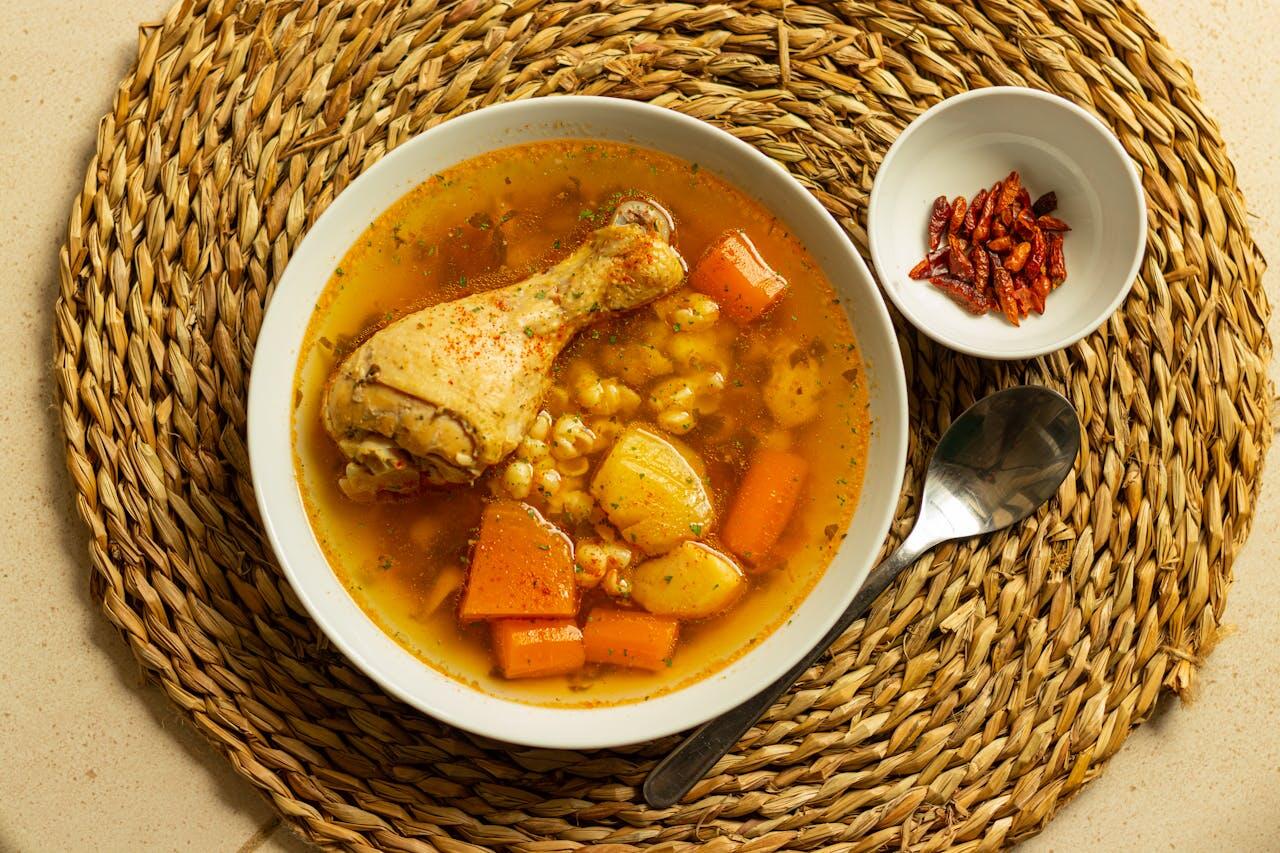
Let's look at some of the top food choices that have been incorporated into the Canadian diet. First up, it's the gratifying and delicious Spanish chicken, which is amazingly healthy and is befitting for dinner, especially if you follow 1200–1500 calories a day.
Next up, we have Paella Valenciana: It is often arranged in very large pots; it is a family-style food comprising rice and a mixture of seafood and meat.
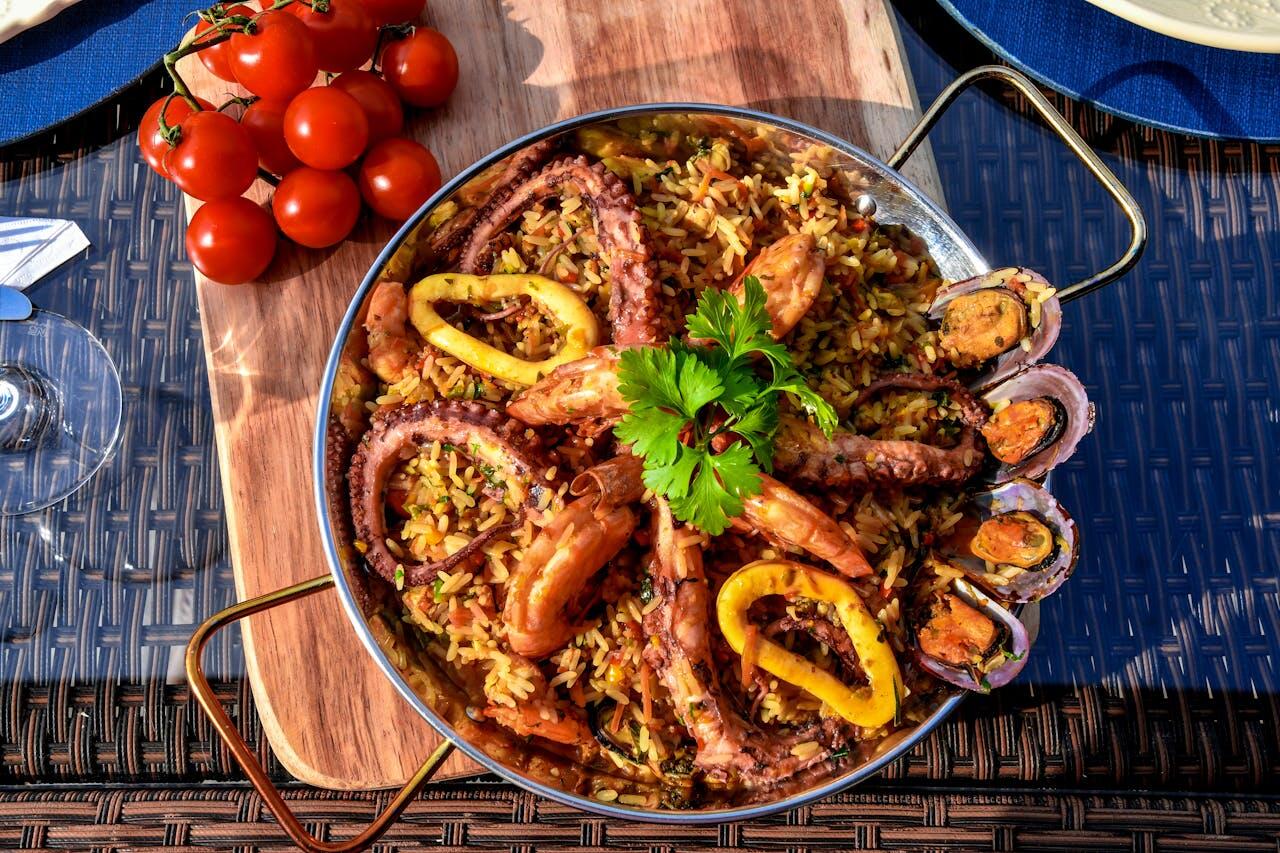
➤ Olive oil
➤ Chicken thighs
➤ Salt
➤ Pepper (red and green)
➤ Onion
➤ Plum tomatoes
➤ Garlic
➤ Cream
➤ Chicken stock
➤ Paprika
➤ Saffron threads
➤ Bay leaf
➤ Pimento-stuffed green olives
➤ Ripe tomatoes (peeled)
➤ Squid
➤ Saffron strands
➤ Extra virgin olive oil
➤ Garlic cloves
➤ Paprika
➤ Fresh green beans
➤ Short-grain white rice
➤ Boiled water
➤ Salt
➤ Pepper
➤ Shelled clams
➤ Shelled mussels
➤ Small crayfish or large shrimp (with shells)
On the other hand, Pinchos are usually offered on a spike or toothpick, and they are primary bar snacks, ideal for eating out with close friends. Tapas, like pinchos, is happy hour food meant to be consumed as appetizers or dessert.
Cured meat and cheese platters are traditional Spanish cuisines that have now become pretty rampant. There are also Spanish wines, cocktails made with Spanish spirits, and sherries, a Spanish staple.
When it comes to desserts, there is the Spanish Latte; this sweet, rich drink is made with condensed milk and Spanish-inspired boozy coffees. And of course, churros which is served with dipping chocolate cabrito.
💃 Festivals and Events
Every year, the town of Spanish in Ontario hosts events like the horseshoe tournament, Spanish Fun Days for baseball games, a dance, food concessions and children's games, attended by many Canadians, and taking part in these occasions is a surefire way to understand the culture.
Another popular Spanish cultural event that is widely celebrated in Canada is the Vancouver International Flamenco Festival that is organized by Flamenco Rosario. The event highlights the beauty of the flamenco dance, which originated from Andalusia and is included in the Representative List of the Intangible Cultural Heritage of Humanity by United Nations Educational, Scientific and Cultural Organization (UNESCO) since 2010.
📚 Spanish Language and Education in Canada
Granted that there is already an existing Spanish community and interest of the language in Canada, it's no surprise that many non-native speakers in Canada are picking up the language at different places, whether it's through private language classes or an official Spanish language degree in university.
Did you know that Spanish is the official language in over 20 countries and that over 500 million people speak Spanish? The Spanish culture is so captivating that experiencing an aspect of it even once would turn you into a super fan.
To ensure that you attain the level of mastery that would enable you to blend in with the culture and communicate appropriately in Spanish as though you are a native. For this to be at all possible, it would be best if you had lessons that cater to your exact needs and benefit so that you would learn how to speak Spanish fluently enough for pronunciation, negotiation, cultural skills, logistics, business terminology, and so on.
At Superprof, all lessons are a perfect blend of cultural knowledge with grammar and vocabulary development, and thoroughly thought by a wide selection of experienced Spanish language tutors from different locations, including Toronto. So you can take lessons to enable you to speak the language like a native, even if you are just beginning to understand Spanish.
In-person and online lessons (as of May 2025)
Continue reading to explore the different language learning levels with different learning outcomes that you should aspire to reach at every stage.
⏫ Beginner
You will gain knowledge of all the fundamentals needed to initiate a dialogue or get around properly during your travels. You would also learn to ask people for and give private information, order a restaurant, rent a flat, etc.
Discover Spanish lessons in Ottawa.
⏫ Intermediate
If you have understood the basics of the Spanish language before now, you would learn how to write a CV in Spanish, narrate past experiences and generate new friendships during the Spanish group meet-ups, both formal and informal.
You would learn to master the past tenses, come up with hypothetical scenarios and talk about them, narrate stories and give anecdotes, express your views and desires with the conditional and subjunctive tense, and give commands and orders with the imperative form.
⏫ Advanced
You would also understand the grammatical concepts of the Spanish language so that you can converse confidently with a native Spanish speaker and work in any Spanish-speaking country of your choice, whether in-person or remote. You would be able to utilize the subjunctive tense to converse concerning theoretical situations, and understand all verbs to enhance communication.
Are there many Spanish natives in Vancouver? Find out!
Ultimately, you would be fluent in Spanish and comfortable speaking Spanish always, because you would have mastered all the different variations of the language, even the most complex grammar. To be able to gain the level of mastery that would enable you to understand the Spanish culture, you would need to practice:
- Tests to assess your understanding of the key concepts
- Interactive lessons with daily exercises.
- Frequent evaluations (in case we need to try a different approach).
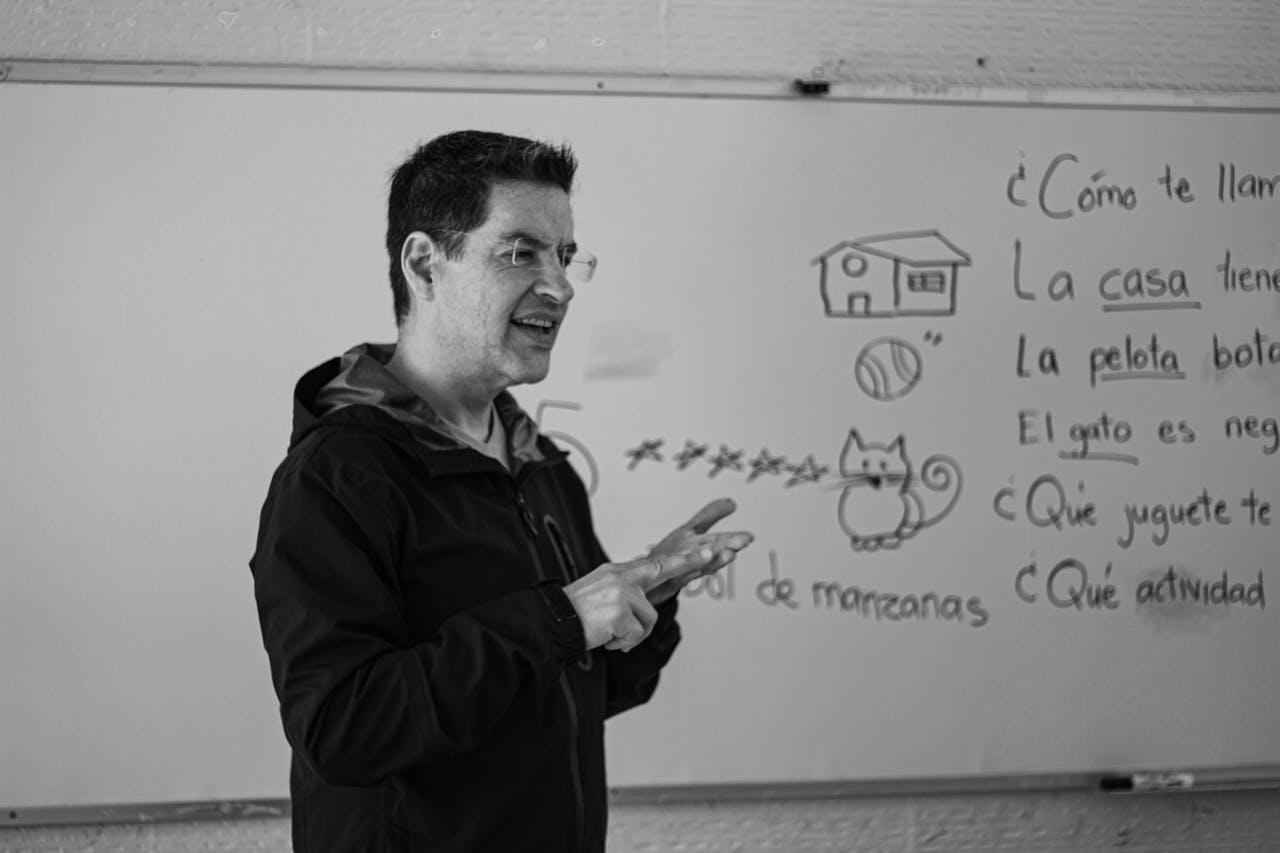
🎓 Educational Institutions and Programs
Now, let's review some notable universities and colleges offer Spanish language and cultural studies for both undergraduate and postgraduate students in the country.
| Institution | Program Name (Degree) |
|---|---|
| University of British Columbia (UBC) | Bachelor of Arts (BA) in Spanish |
| University of Calgary | Bachelor of Arts (BA) in Spanish and Latin American Studies |
| University of Toronto | Bachelor of Arts (BA) in Spanish Studies |
| York University | Bachelor of Arts (BA) in Spanish |
| Université de Montréal | Baccalauréat en langue et culture hispaniques |
| Carleton University | Bachelor of Arts (BA) in Spanish |
| Western University | Bachelor of Arts (BA) in Spanish Language and Hispanic Cultures (major and minor) |
| McGill University | Major in Hispanic Studies under Bachelor of Arts (BA) |
| University of Ottawa | Bachelor of Arts (BA) in Spanish |
| Concordia University | Bachelor of Arts (BA) in Spanish, Hispanic Cultures and Literatures |
We hope you have found this article insightful and inspiring as you learn about the fascinating relationship between Spanish Canadian culture in our country and the significance of mastering this language today! Happy learning, amigos!
Summarize with AI:

